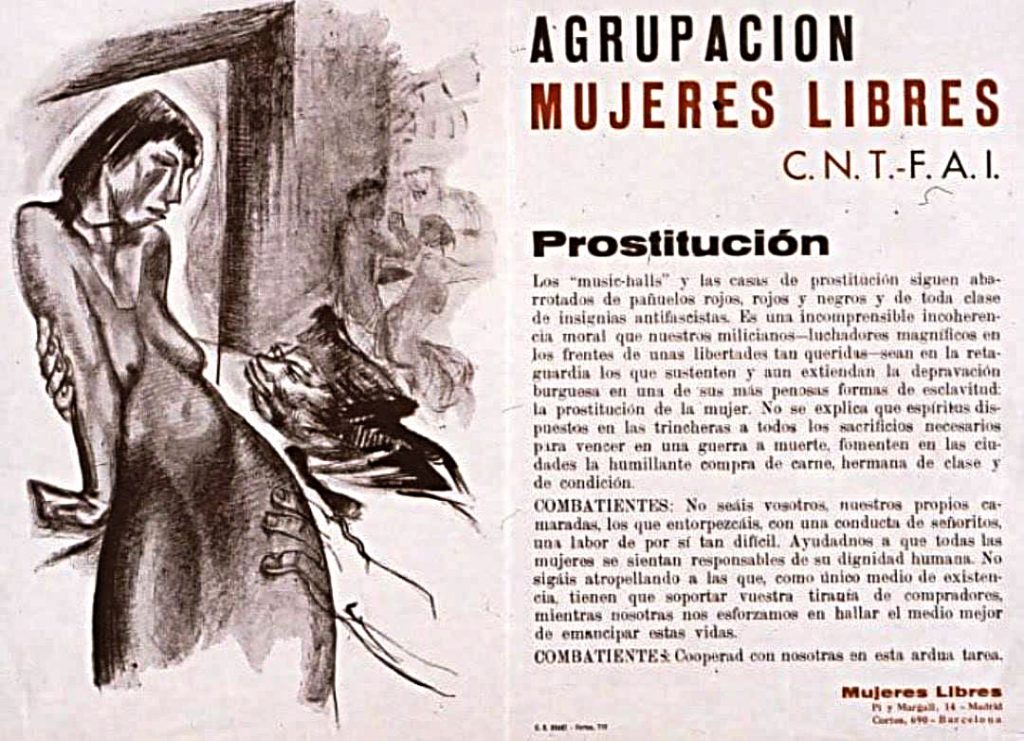Fallacies of prostitution: moralism~ 3 min

By Aline Rossi
Part two of three. Part one on revisionism and whitewashing.
The fallacy of moralism
First of all, it’s worth pointing out how curious it is that while abolitionists of the prostituting system argue against industries, oppressions and notions harmful of civil rights by quoting statistics and studies, people who are pro-regulation of demand speak out against… abolitionists, feminist ones in particular. And amongst their most common arguments is the accusation of moralism.
It’s an interesting debating style, to rebut statistics and structural analysis with accusations of moralism and epithets such as “anti-sex”. But, it being so common, it’s important to take apart this fallacy.
This is an argument not rooted in logic or coherence, but in vanity. Nobody wants to be compared to a conservative. Nobody wants to be a moralist. Not in left circles, anyway.

Meanwhile, nobody is afraid of accusations of being moralist or “anti-love” for criticizing marriage: we know the criticism isn’t made against people in relationships, but against an institution that privatizes reproductive labor and feeds the political and economic system of capitalism. We don’t also assume that someone is anti-food or anti-eating because said person criticizes the fast food industry. But when we criticize the sex industry, be it traditional prostitution or technologized prostitution (aka: pornography) – and it is worth highlighting that it is one of the biggest in the world, outgrossing Amazon, Netflix, Google and Microsoft PUT TOGETHER – we are called “moralists”.
Apparently, there is a field of study for which materialist structural analysis isn’t permitted. Even if that field deals with a billionaire industry founded on human trafficking and alienated labor.
No abolitionist or sex industry critic can escape the accusation of moralism. Not even Andrea Dworkin, feminist author recognized for her anti-pornography and anti-prostitution militancy who for years was a prostitute “by choice”, was spared accusations of being a moralist. What to say of women who were prostitutes, even militants for regulation, and today are abolitionists? Women such as Sabrinna Valisce in New Zealand, Nomonde Mihali in South Africa, Rachel Moran in Ireland and Vednita Carter in the United States.
Abolitionists of the prostituting system don’t criticize prostitution because it’s “sex outside marriage”, because “sex must be loving” or any other aberrant romanticization. Abolitionists criticize the industrialization of sex and the commodification of the human body. Because prostitution, like pornography, distorts and obliterates the civil and human rights of women from the moment it legitimizes that sexual access to their bodies may be obtained through financial power – something which, by itself, should be an alarming sign for movements who call themselves anti-capitalist. If you find a moralist conservative who makes the same argument – JUST ONE – I’ll throw in the towel.
Third part: “Fallacies of prostitution: consent and choice”
Aline Rossi writes in Portuguese at the blog Feminismo com Classe, where she also publishes translated feminist texts from all over the world at a prolific pace.




